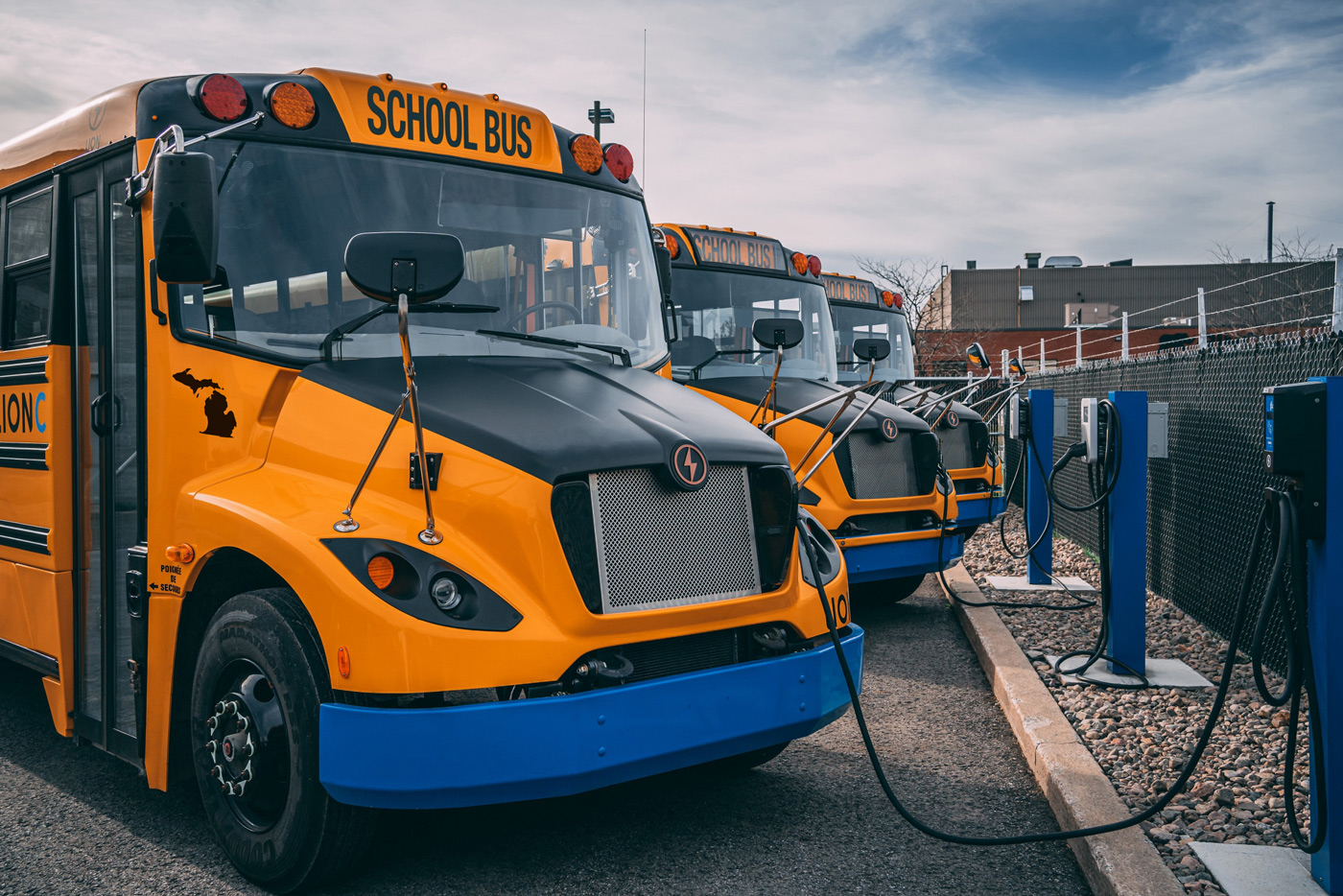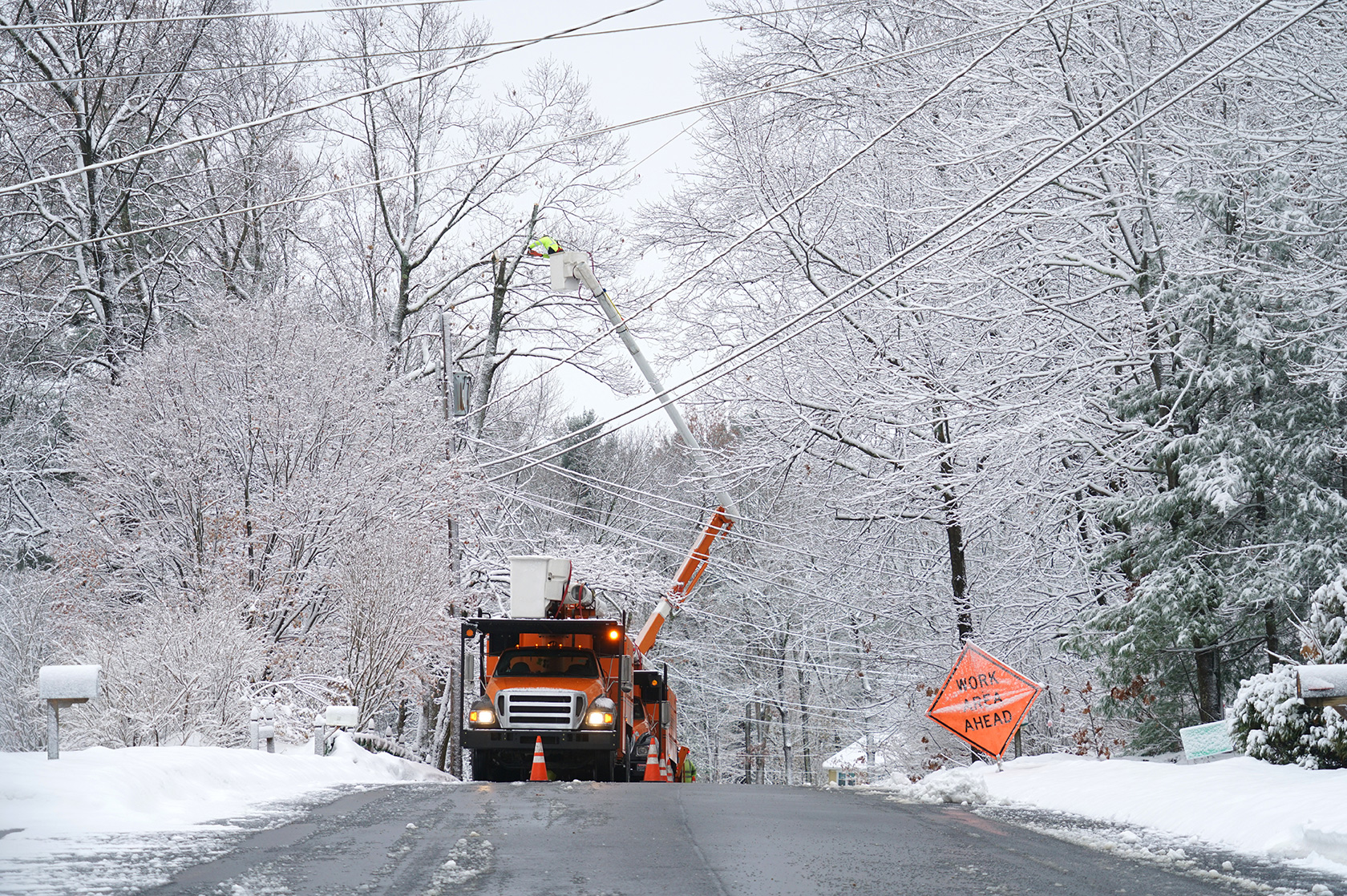Jackson Public Schools will replace its entire fleet of school buses with 21 new electric vehicles by 2025. The transition is being funded by an $8.3 million grant from the Environmental Protection Agency’s new Clean School Bus program, which was created by President Biden’s economic recovery program.
The new 72-passenger buses will transport about 1,500 students daily, allowing Jackson schools to streamline its operations and transport kids in safer, cleaner buses. The funding will also be used to install electric charging stations and to pave the parking lot for the buses at the Operations Center.
“It’s going to save us money on repair and it’s going to provide us with 21 brand new buses, and take out of commission 21 older diesel buses that required significant maintenance — some that were reaching end-of-life,” JPS Superintendent Jeff Beal told MLive.
The total costs of ownership of an electric school bus average $410,000. The costs for a diesel school bus – including maintenance and fuel costs for the life of the bus – average $653,000, according to the Environmental Defense Fund. That’s an average savings of $243,000 for each electric bus. For Jackson, it is an overall savings of $5.1 million to taxpayers over the lifespan of the new fleet.
One of the first Michigan districts to add electric buses was Pellston, in Northern Michigan’s Emmet County. In April 2023, the district introduced the first four electric buses into its fleet. Within a month, the district reduced bus operating costs by 45 cents a mile and saved over $1,300, according to Consumers Energy, the private sector partner helping Pellston manage the transition.
Under the EPA program, Michigan received $54 million to help 25 public school systems replace 138 older buses with cleaner, more cost-efficient electric vehicles. The effort to modernize school bus fleets will not only lower transportation operating costs across the state, as well as helping the state meet the goals laid out in its MI Healthy Climate Plan, which aims to reduce greenhouse gas emissions and reach economy-wide carbon neutrality.
“Electric school buses will make a big difference for schools across Michigan. This investment will improve air quality while helping our school districts cut their transportation costs and keep more resources in the classroom. It’s a great step to protect the health of our children and save schools money,” Senator Debbie Stabenow said in a press release.
Nationwide, the EPA’s Clean School Bus Program helps states replace old, polluting buses that use fossil fuels with zero emission vehicles. The program was created as part of President Biden’s infrastructure law to help schools protect their environments from the pollution and poor air quality often associated with fossil fuel buses. The funds can only be used for American-made batteries and vehicles, making the program a booster for domestic manufacturing as well.
Key facts:
- Jackson Public Schools is set to replace its entire fleet with 21 new electric buses by 2025, funded by an $8.3 million grant from the EPA’s Clean School Bus program, aiming for safer and more efficient student transportation.
- Replacing diesel buses with more environmentally-friendly, electric buses is expected to save an average of $243,000 on repair costs and maintenance per bus.
- The nationwide EPA Clean School Bus Program, supporting this initiative, aims to replace old, polluting buses with zero-emission vehicles, promoting cleaner air quality and supporting manufacturing of American-made batteries and vehicles.





